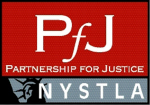 If your law firm still handles Medicare lien resolution in-house, there are now 155,000 reasons for you to consider looking for a new solution. That’s because later this year Medicare is rolling out sweeping revisions to the billing codes that must be used in connection with Medicare reimbursement and lien-related work.
If your law firm still handles Medicare lien resolution in-house, there are now 155,000 reasons for you to consider looking for a new solution. That’s because later this year Medicare is rolling out sweeping revisions to the billing codes that must be used in connection with Medicare reimbursement and lien-related work.
The Medicare bureaucracy is often reviled for its complexity and inefficiency. Well, it’s about to get a whole lot worse. As of Oct. 1, 2015 the ICD-9 codes, which have been in use since 1975, are going to be replaced with the next generation, ICD-10. The change over entails an exponential increase in complexity, moving from the 17,000 treatment codes covered by the current ICD-9 scheme to as many as 155,000 treatment codes possible under ICD-10. As Medicare explains it, the massive overhaul is necessary to ensure more accurate billing and to better reflect the full range of technology, diagnoses and procedures used in hospitals today.
This means that hospitals have to modernize EVERYTHING relating to their billing systems and procedures. The billers have to be retrained, the computers have to be upgraded and no, this won’t come cheap. The President-elect of the American Medical Association, Steven J. Stack called the change “a massive unfunded mandate that comes at a time when physicians are trying to meet several other federal technology requirements and risk penalties if they fail to do so.”
The same retraining and system upgrade will be necessary for law firms that intend to continue handling Medicare lien resolution work in-house. The new codes will be infinitely more complicated, with different decimal place holders and subcategories, but mastery of the new scheme will be necessary as of Oct.1, in order to obtain the release of any settlement funds that are encumbered by a Medicare lien. That’s why we see this is a perfect opportunity for law firms to consider a new approach to lien resolution. With an outsourced solution, your firm can avoid the costs of upgrade and retraining and then going forward your staff can altogether stop wasting time on an activity that doesn’t even produce revenue.
This pending rule change presents no problem for clients of ours who are already taking advantage of lien resolution services through our partner, Providio Medisolutions. That’s because Providio is in position to master the new ICD-10 codes in order to insure that come Oct.1, settlement funds will still be distributed in a timely manner. This completely relieves lawyers and staff from dealing with the cumbersome task so that they are free to focus on more important case-related matters. As part of our outsourced solution, we also audit the Medicare bills to insure that the Medicare only gets reimbursed for those treatments actually related to the case being settled. Medicare often asserts claim for reimbursement on unrelated treatment expenses – a practice we certainly don’t expect to change with the implementation of these new billing codes.
ICD codes refer to the International Statistical Classification of Diseases and Related Health Problems maintained by the World Health Organization, the coordinating authority for health within the United Nations. The ICD system classifies diseases based on signs, symptoms, abnormal findings, complaints, social circumstances and external causes of injury or disease. The ICD-10 codes were developed in 1992, but Medicare has not implemented them until now. ICD-11 is planned for 2017. So in case you’re not deterred by the prospect of retraining your staff to learn the 155,000 new billing codes, keep in mind that further revisions are already in the works.


[…] scheme, referred to as ICD-10, is set to go into effect in less than 2 weeks on October 1st. (Click here to read our prior blog […]